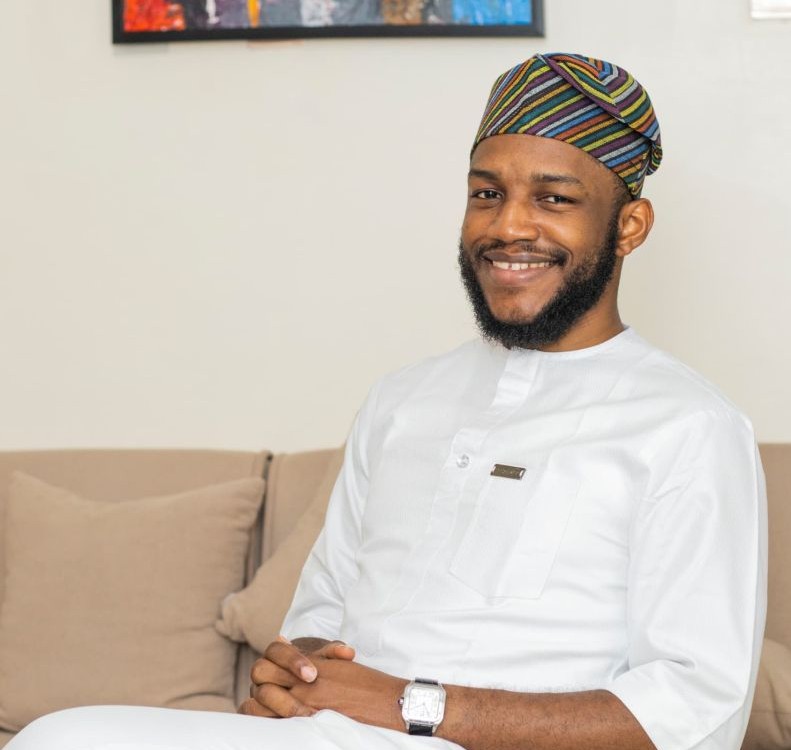In Nigeria’s bustling tech sector, where talent is often as scarce as venture money, an old debate resurfaced this week on LinkedIn, igniting an unusually heated conversation about what academic credentials should mean in Africa’s fastest-growing digital economy.
The spark came from Sycamore CEO and Co-founder, Babatunde Akin Moses, who publicly countered an earlier hiring philosophy shared by Adedeji Olowe, Founder of Lendsqr, that favours first-class and second-class upper graduates.
Moses, himself a first-class graduate, argued that merit on paper is not always a mirror of competence.
“I believe the role of intellect is overstated,” he wrote, insisting that qualities like grit, discipline and emotional intelligence “often matter more than the grade on a certificate.”
Olowe, respected for his data-driven approach, pushed back, saying:
“Students who finished with strong grades tend to outperform on average… because they already learned how to grind.”
What followed was a flood of reactions, from professionals remembering their struggles as 2:2 graduates to hiring managers defending their rigorous filters, showing how divided the ecosystem remains over what academic excellence really predicts.
A Debate Rooted in Two Realities
The disagreement between Moses and Olowe sits at the intersection of aspiration and scarcity, two forces that shape Nigeria’s tech labour pipeline.
For Olowe, whose companies have grown fast and demand high-calibre talent, grades help identify candidates who have already demonstrated discipline.
Reflecting on a hiring experiment he conducted while at Coronation Group, he explained:
“We ran a blind hiring experiment with over two thousand candidates. Grades were hidden until the final stage. The people who survived the assessment turned out to be those with good grades.”
To him, this pattern is too consistent to ignore. “Filters are never perfect… But I can’t build a hiring system on exceptions.”
Moses, who Olowe acknowledges as “one of the smartest people I’ve ever worked with,” sees the ecosystem differently.
His early years at Sycamore were not flooded with CVs, so filtering by degree class felt unnecessary and even counterproductive for startups still shaping their culture.
He argued that academic brilliance does not necessarily translate into workplace success.
“There are brilliant students who never pushed themselves simply because they were not interested in academia.”
Instead, he champions intangible attributes, focus, self-discipline and emotional intelligence, that are just as vital as technical ability.
Beyond Class of Degree: Stories from the Middle
The debate’s emotional charge came from those whose academic performance did not reflect their professional competence. Bisola, a communications and growth specialist, offered a blunt rebuttal to hiring filters tied strictly to grades.
“I’m a proud 2.2 holder,” she said. “What speaks for me… is my astute confidence, ability to drive meaningful conversations and grit. I recognise patterns quickly and this is how I solve problems, not by the degree that was foisted on me.”
Her account mirrors the reality of many young Nigerians who juggle academic pressures with financial burdens, unstable institutional environments or personal challenges.
Another commenter, Tobi Ogunkoya, a product manager, highlighted how life circumstances, not lack of commitment, shaped his 2:2 result.
“I knew how much I wanted to prove that I’m a first-class product that life situation happened to,” he wrote, explaining that dropping to a 3.34 CGPA did not reflect his intellectual capability.
His story resonated widely, underscoring the burden many graduates carry when navigating a labour market obsessed with transcripts.
Recruiters Say Talent Is More Than a Transcript
Professional recruiters also weighed in, offering a third perspective grounded in practical hiring experience.
Frank Atat, a digital transformation professional, argued that choosing talent requires more than academic metrics, even more than intuition.
“I have recruited by instinct, by using sports, using social interaction and even testing with how best the man or woman can handle human rejection,” he wrote.
His unconventional methods, he said, have produced “exceptional performance,” though he admits mistakes happen.
Atat’s analogy of a “three-sided coin”, one that represents the coexistence of different hiring philosophies, captures the difficulty startups face when balancing risk, ambition and culture.
In his view, market realities should guide recruitment models, whether that means relying on data, intuition or a blend of both.
His contribution reflected what many HR experts warn, filtering candidates too narrowly risks excluding talent that could thrive with the right opportunity.
The Psychological Weight of Grades
Beyond talent strategy, the debate exposed the psychological toll academic classifications impose on graduates.
Peter Sodipe, a finance business partner, noted that while aiming for a first-class or 2:1 is good advice, one’s grade becomes irrelevant quickly in real-world settings.
“Your class of degree does not define you,” he said. Instead, he argued that the real challenge for 2:2 and 3rd class graduates is identity, how society conditions them to equate lower grades with failure even when the workplace proves otherwise.
Sodipe added that a certificate has a short shelf life.
“From my own experience, your certificate carries weight for only two to three years after NYSC.”
What matters after that is how graduates position themselves, through internships, skills, and adaptability, to navigate the early years that shape their careers.
What the Debate Reveals About Nigeria’s Tech Ecosystem
At its core, the exchange between Olowe and Moses, as well as others is a microcosm of a larger tension in Nigeria’s economic landscape, that’s how to balance opportunity with excellence in a system marked by uneven access to quality education.
Startups want speed, precision and reliability, factors that seem easier to guarantee with strong academic performers.
Yet the country’s brightest innovators often emerge from unconventional backgrounds, nurtured not by textbooks but by resilience and real-world challenges.
Moses’ argument that work requires “the right mix of social and emotional intelligence” reflects the increasing global shift toward soft skills, especially in tech where collaboration and adaptability are just as essential as coding proficiency.
Olowe’s insistence on patterns over exceptions highlights the efficiency-focused mindset of founders trying to scale in competitive markets.
However, both views hold truth, and both reflect the complexity of hiring in an ecosystem still defining its identity.
A Debate Unlikely to End Soon
The conversation has no clear winner, and perhaps that is the point. In an environment where millions graduate each year into a job market offering far fewer opportunities, degree classifications are both a shortcut for employers and a barrier for many qualified candidates.
What the debate shows is that Nigeria’s tech leaders are still wrestling with the fairest, most efficient way to identify talent in a system where excellence can be both a privilege and an achievement.
As Moses reminded us, “Your degree or certificate may open a door, but your attitude, discipline and decisions will determine how far you go.”
And for Olowe, the hiring challenge remains a balancing act, that’s identifying the exceptional 2:2 without “kissing many frogs” along the way.
In a rapidly evolving tech ecosystem hungry for talent, the tension between these philosophies may continue to shape conversations, and hiring decisions, for years to come.
Talking Points
The debate between Babatunde Moses and Adedeji Olowe exposes valid but incomplete views on talent evaluation, revealing blind spots on both sides.
Olowe’s reliance on academic patterns as predictors of workplace success is grounded in data and efficiency, yet it risks oversimplifying human potential by assuming that discipline in school directly translates into professional excellence.
This assumption ignores systemic issues such as under-resourced universities, economic hardship, and inconsistent grading cultures.
Moses’ emphasis on grit, emotional intelligence, and situational factors broadens the definition of competence, but his argument underestimates the operational realities of fast-scaling startups that often rely on tight filters to reduce recruitment risk.
While the commenters present compelling evidence of successful professionals who graduated with lower grades, their experiences, though valid, do not negate the reality that academic excellence remains a useful, if imperfect, signal in competitive markets.
Ultimately, the debate reflects a false binary, that’s grades alone are too narrow to be reliable, yet dismissing them entirely undermines meritocratic evaluation.
A balanced hiring philosophy would treat academic performance as one indicator among many, neither a gatekeeper nor an afterthought, while acknowledging Nigeria’s uneven educational landscape and the necessity for practical, context-specific recruitment strategies.
____________________
Bookmark Techparley.com for the most insightful technology news from the African continent.
Follow us on X/Twitter @Techparleynews, on Facebook at Techparley Africa, on LinkedIn at Techparley Africa, or on Instagram at Techparleynews





